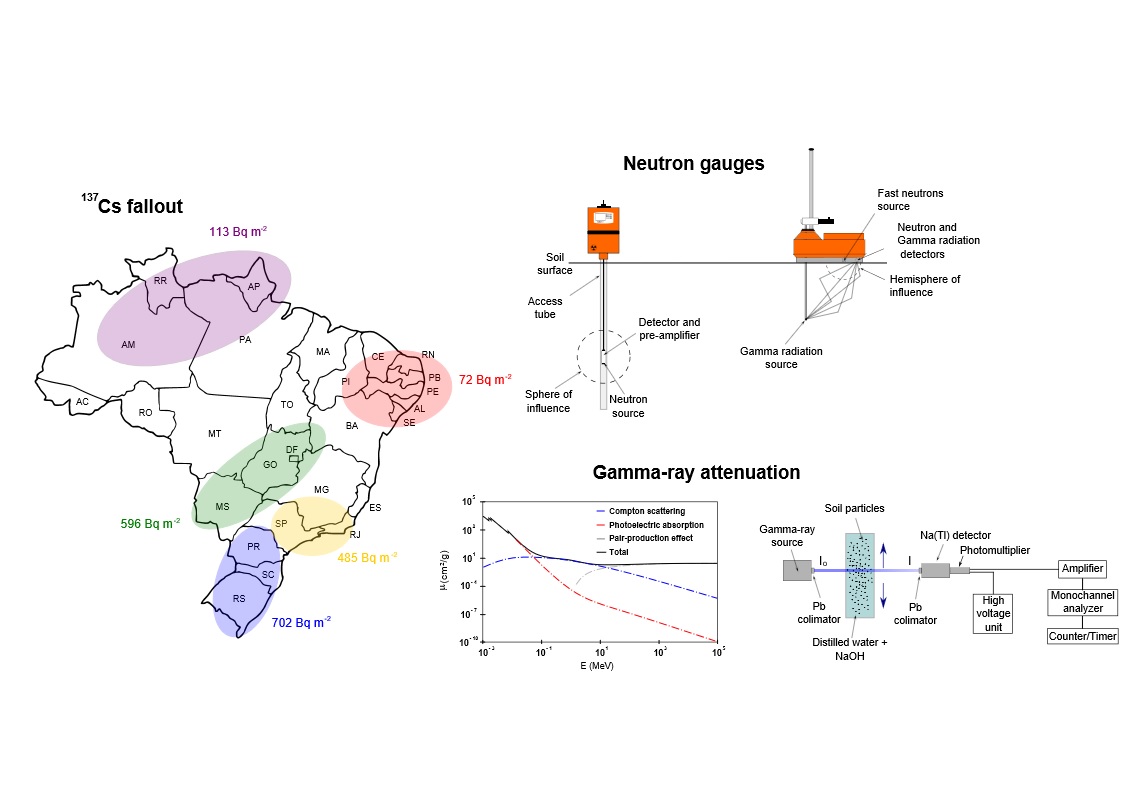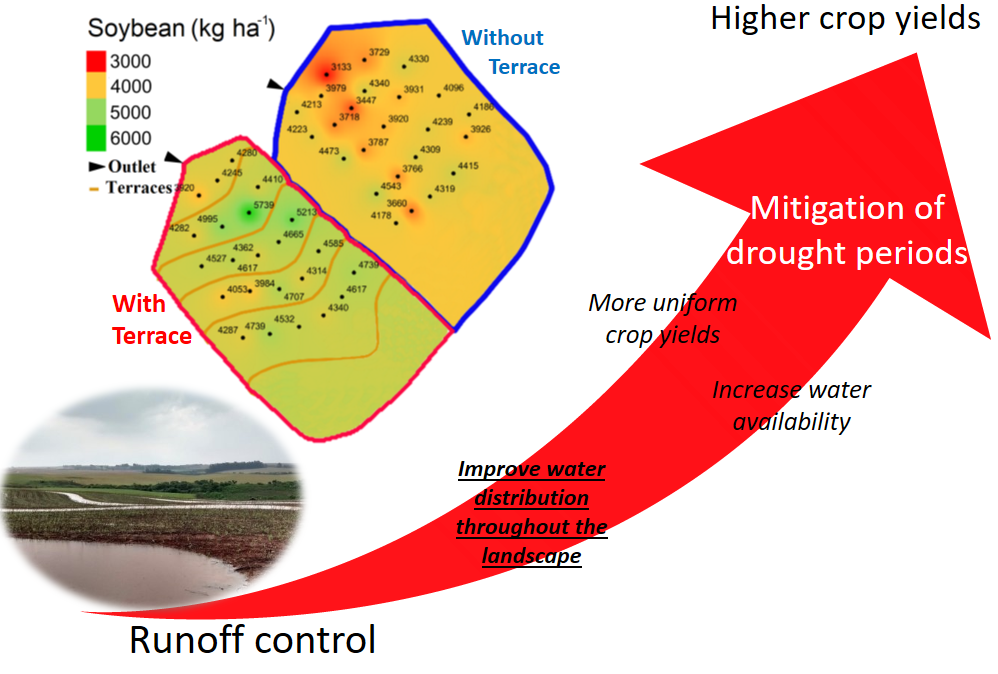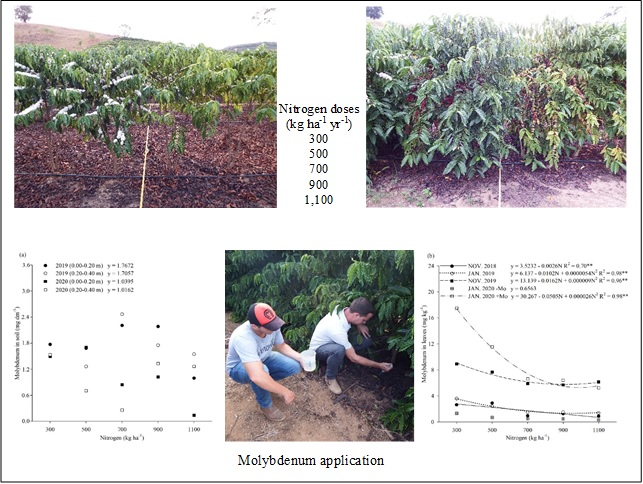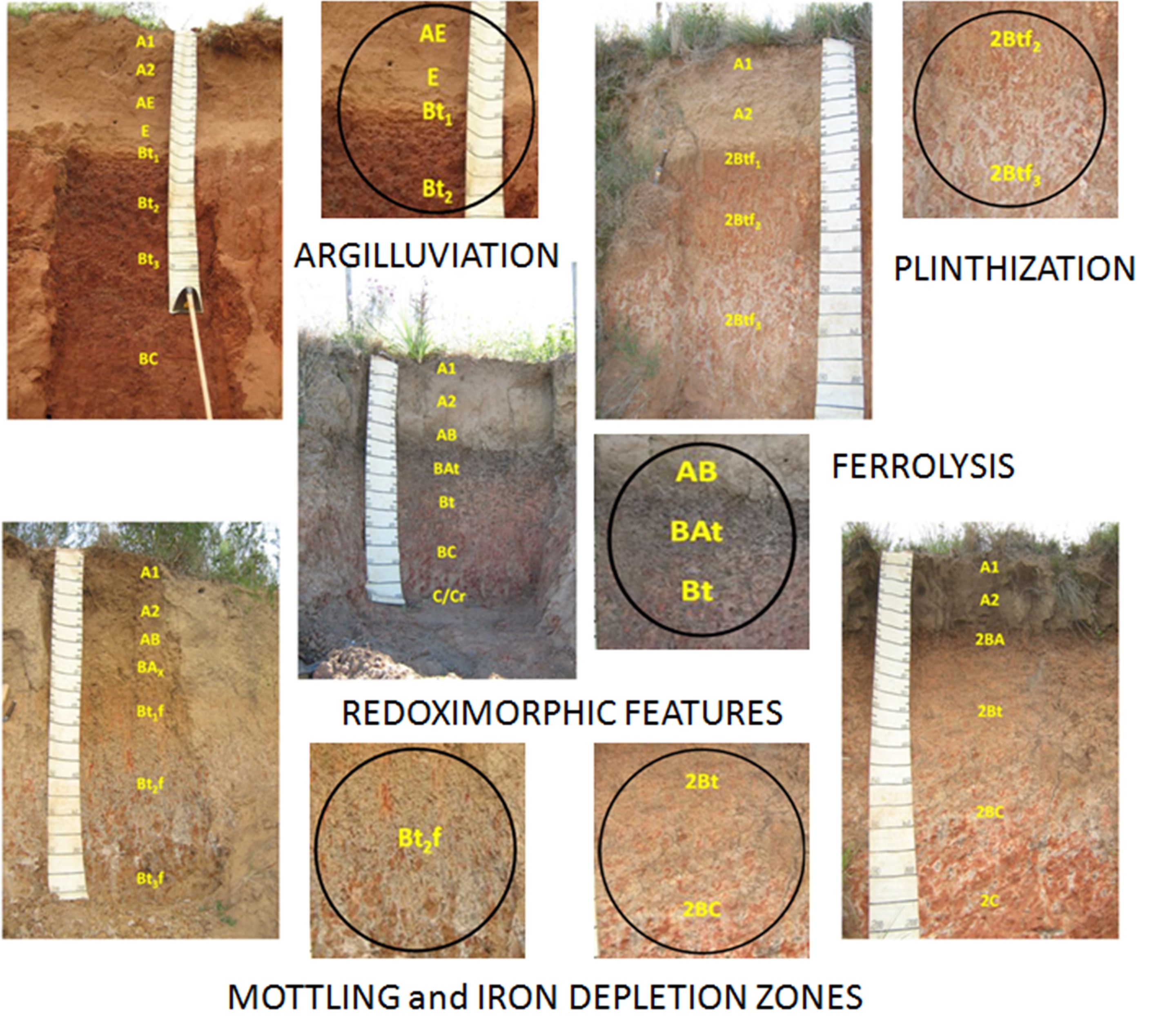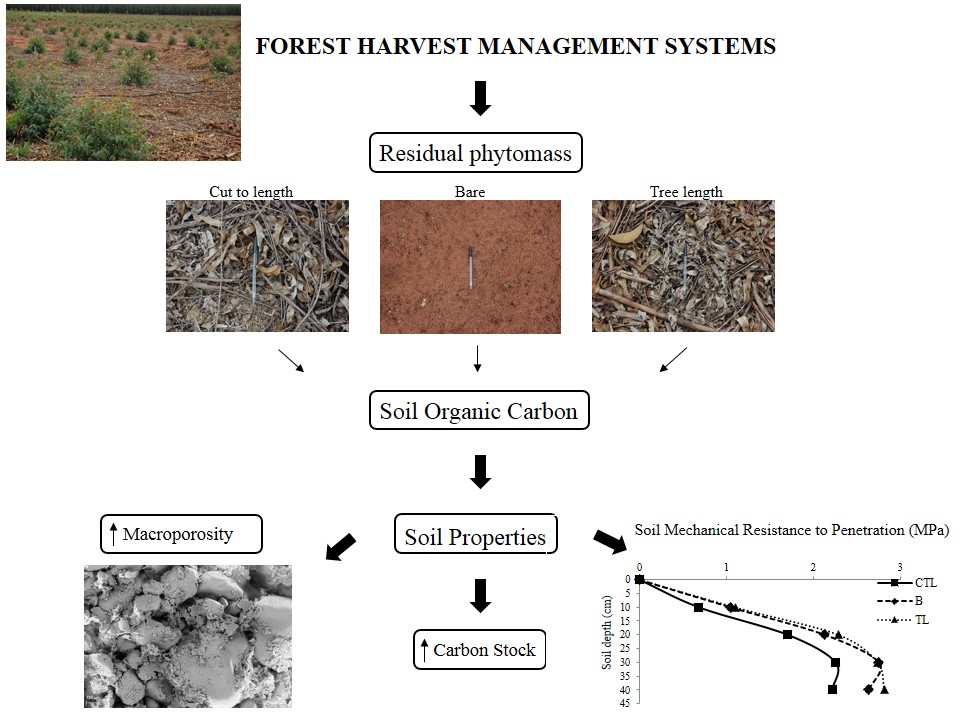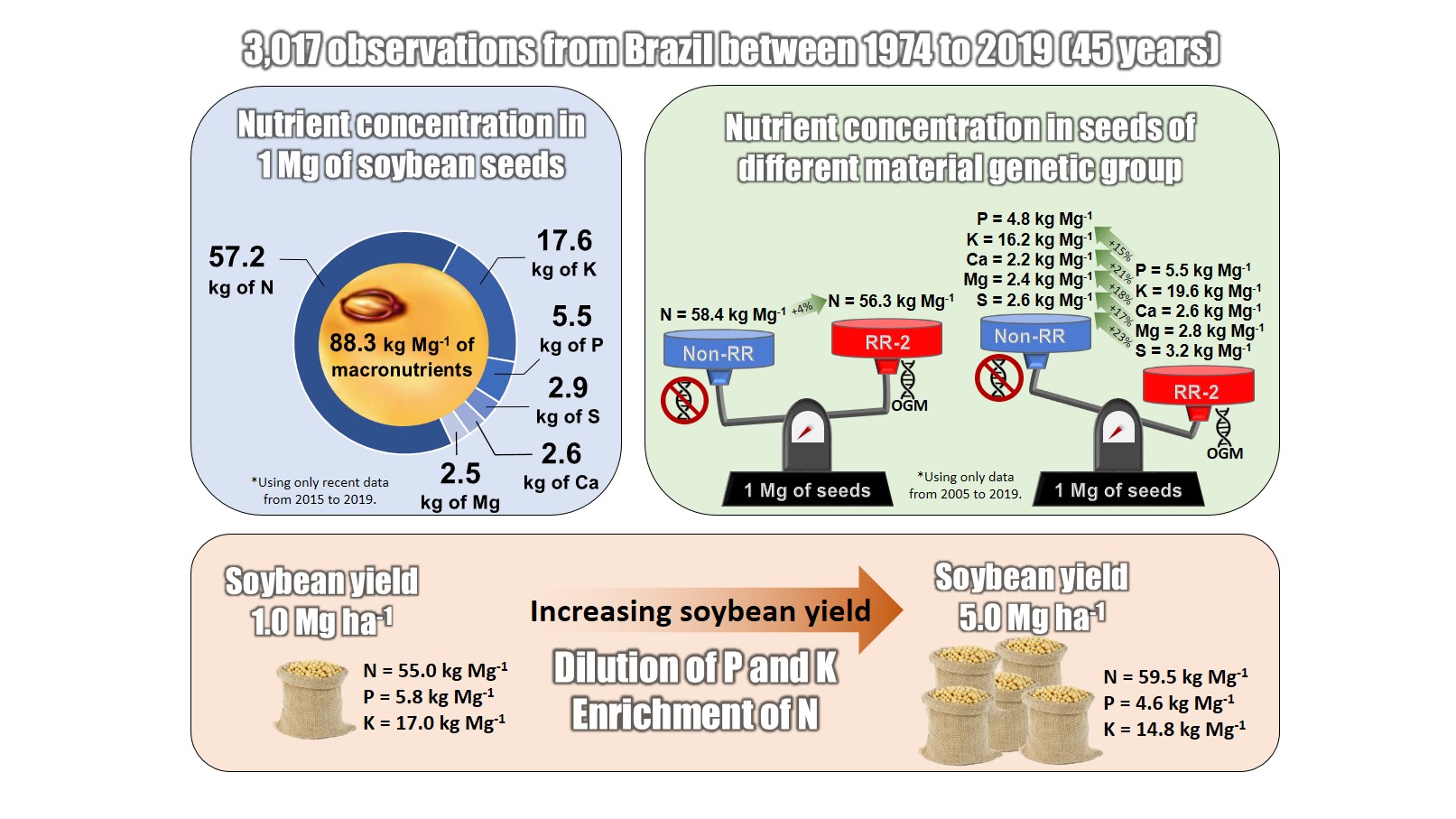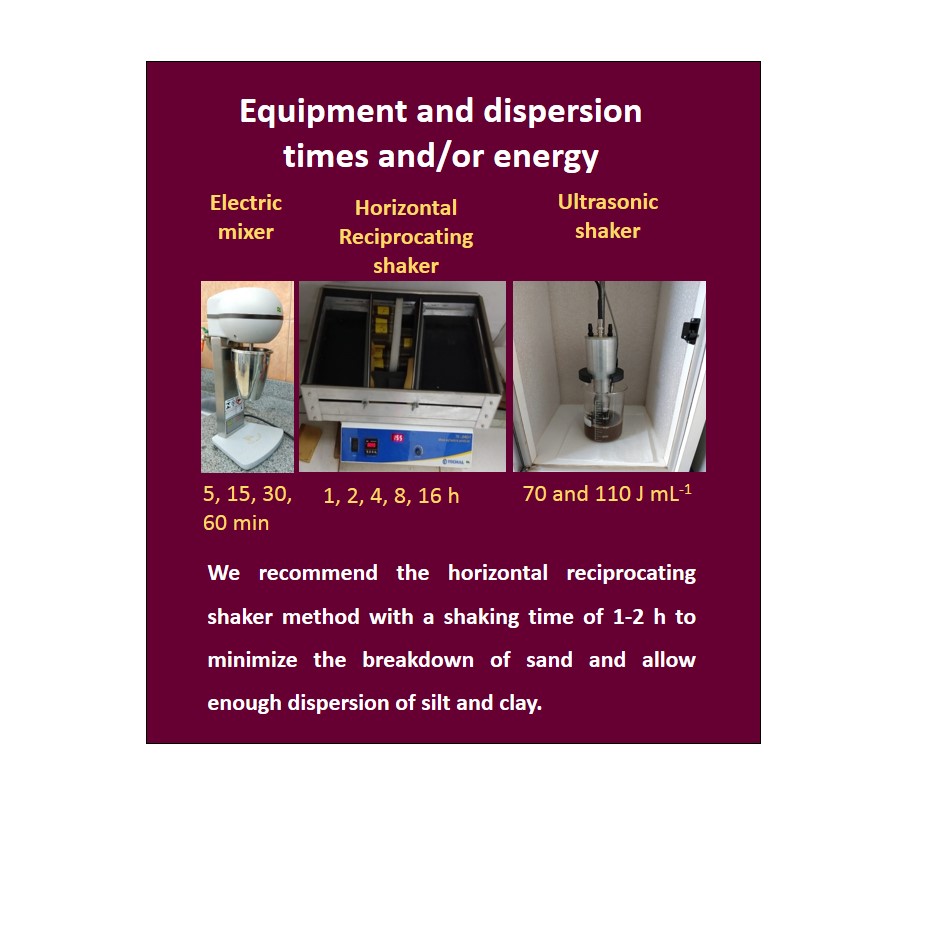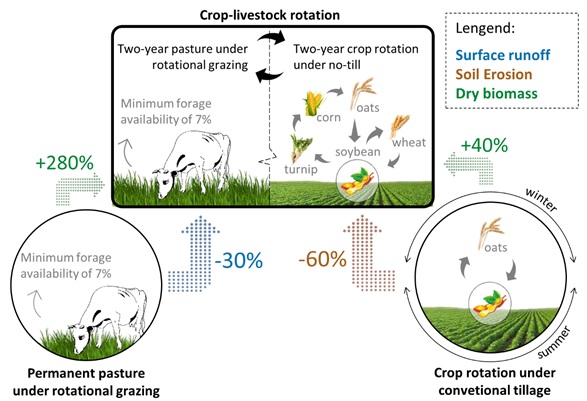Use of nuclear techniques in soil science: A literature review of the Brazilian contribution
24/Nov/2021
ABSTRACT This review presents the basic research and some applications of the gamma-ray attenuation, neutron gauges, and 137Cs fallout techniques for studying soil physical processes and properties. The selected studies aimed to give the readers a general idea of the use of these nuclear techniques carried out by Brazilian researchers in the past decades. It is expected to assist future researchers by identifying knowledge gaps and opportunities for applying the methods presented here. Around 100 studies were selected for this […]
Managing runoff in rainfed agriculture under no-till system: potential for improving crop production
11/Nov/2021
ABSTRACT Strategies to mitigate degradation and ensure food and water security are among the main challenges in agricultural development. Unconsolidated information about the positive impact of conservationist practices on productivity increase is fundamental for their adoption by farmers. This study evaluated if the saved rainfall excess in catchment with terrace generates higher soybean and corn yield due to greater water availability in the crop rooting zone. Experiments were conducted in southern Brazil during the agricultural years of 2016/17 (soybean) and […]
Soil chemical properties and nutrition of conilon coffee fertilized with molybdenum and nitrogen
11/Nov/2021
ABSTRACT Molybdenum (Mo) availability is strongly affected by soil pH, which determines the dynamics of electrical charges and the adsorption of molybdate. This study evaluated the effects of nitrogen (N) and Mo application on the chemical properties of a Latossolo Amarelo (Oxisol) and in Coffea canephora nutrition and productivity throughout two productive cycles under field conditions. The experiment was conducted from June 2018 to May 2020. The experimental design used was in randomized blocks, in a 2 × 5 factorial […]
Epi and endosaturation affecting redoximorphic features and pedogenesis in subtropical soils with high textural contrast developed from sedimentary rocks
11/Nov/2021
ABSTRACT Soils in the Depressão Central and Campanha Gaúcha in Rio Grande do Sul State, Brazil, developed from sedimentary rocks are mainly Alfisols (Luvissolos, Planossolos and Plintossolos) and Ultisols (Argissolos) with high textural contrast between A and/or E horizons and clayey B horizons. Red Ultisols dominate in well-drained areas in the summit. But many soils present redoximorphic features on the backslope and footslope, with mottled and/or nodules similar to plinthite due to the oscillating of the water table above the […]
Forest harvest management systems and residual phytomass affecting physical properties of a sandy soil
05/Nov/2021
ABSTRACT Organic carbon introduced in soils, mainly through organic matter, has a relevant role in various soil properties and is particularly important in sandy soils. In these soils, the input of organic material is necessary to ensure the sustainability of production systems. This study aimed to investigate the changes in total organic carbon content and its effect on physical properties in areas under different harvest management systems (HMS) after the harvest of eucalyptus. The study was performed in December 2017 […]
Concentration and removal of macronutrients by soybean seeds over 45 years in Brazil: a meta-analysis
05/Nov/2021
ABSTRACT A good soil fertility management for soybean production must consider the amount of nutrients that are exported by seeds. In recent decades, soybean yield has increased due to better crop management and genetic improvements, which may affect the amount of nutrients removed. Therefore, this study aimed (i) to analyze the relationship between the concentration of macronutrients in soybean seeds in Brazil with soybean yield and genotypes, and (ii) to update nutrient concentration values in soybean seeds for fertilizer recommendation […]
Shaking settings to reduce the breakdown of Entisol fragile particles in texture analysis
05/Nov/2021
ABSTRACT Finding the proper shaking setting to ensure total particle dispersion without altering the content of sand, silt and clay in soils composed of fragile particles such as saprolite fragments is still a research gap. This study aimed to identify the best shaking setting to optimize particle dispersion and minimize particle change in samples of Entisol (Neossolos). Samples were dispersed using an electric mixer at 12,000 rpm for 5, 15, 30 and 60 min, a horizontal shaker at 150 cycles […]
Soil physical properties and interrill erosion in agricultural production systems after 20 years of cultivation
05/Nov/2021
ABSTRACT Agricultural management significantly influences soil physical properties and soil erosion. However, there are few studies investigating the long-term effects of agricultural management on soil erosion and physical properties. Here, we assessed the impacts of 20-year agricultural land uses under different management practices on soil physical properties and interrill erosion. This study was conducted on an experimental farm of the Embrapa Western Agriculture, Brazil, and the treatments consisted of soybean cropping under conventional tillage (CT) and no-tillage (NT), crop-livestock integration […]
Terracing increases soil available water to plants in no-tillage
15/Oct/2021
ABSTRACT Several management practices can increase soil water storage capacity, but their effectiveness to minimize the adverse effects of drought depends on their potential to increase the soil available water to plants. Terracing is an effective option to increase soil water storage, but its effect on available water to plants in no-tillage system is still a knowledge gap. In this study, we monitored soil water content at eight layers down to 1.6 m in two zero-order paired catchments for 16 […]
Assessing sediment yield and streamflow with SWAT model in a small sub-basin of the Cantareira System
05/Oct/2021
ABSTRACT Hydro-sedimentological models might be useful tools for investigating the effectiveness of soil and water conservation practices. However, evaluating the usefulness of such models requires that predictions are tested against observational data and that uncertainty from model parameterization is addressed. Here we aimed to evaluate the capacity of the SWAT model to simulate monthly streamflow and sediment load in the Posses creek catchment (12 km2), Southeast Brazil. The SUFI-2 algorithm from SWAT-CUP was applied for calibration, testing, uncertainty, and sensitivity […]

